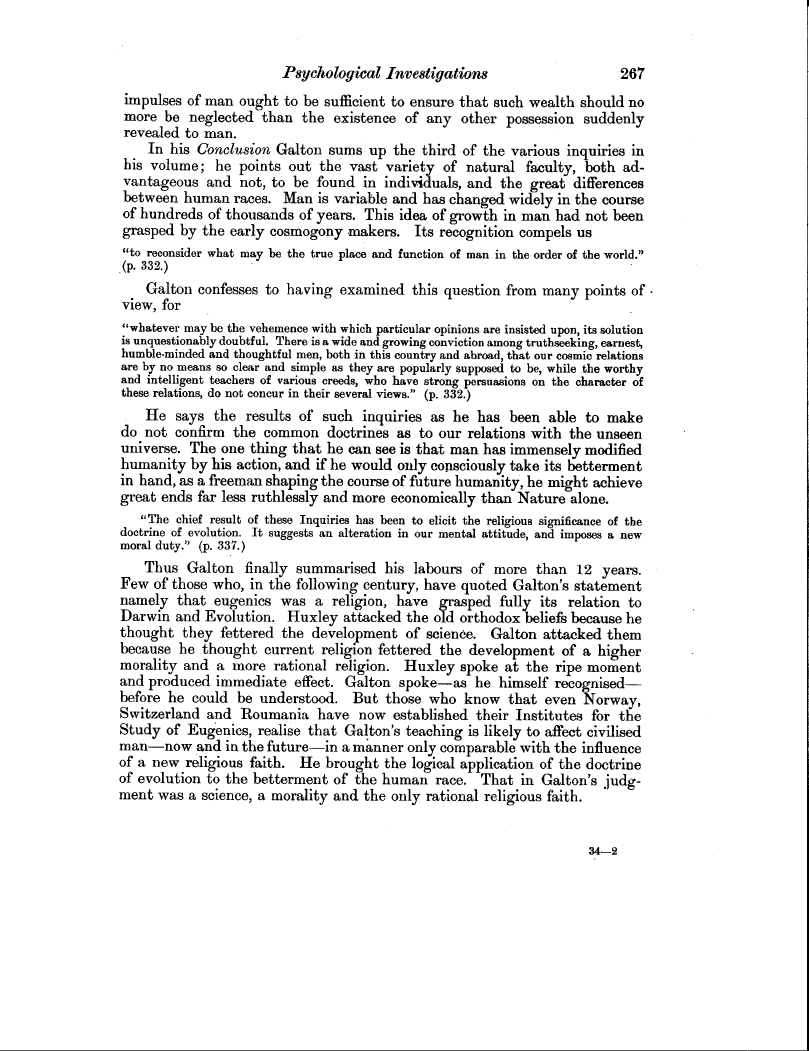Psychological Investigations 267
impulses of man ought to be sufficient to ensure that such wealth should no more be neglected than the existence of any other possession suddenly revealed to man.
In his Conclusion Galton sums up the third of the various inquiries in his volume; he points out the vast variety of natural faculty, both advantageous and not, to be found in individuals, and the great differences between human races. Man is variable and has changed widely in the course of hundreds of thousands of years. This idea of growth in man had not been grasped by the early cosmogony makers. Its recognition compels us
"to reconsider what may be the true place and function of man in the order of the world." (p. 332.)
Galton confesses to having examined this question from many points of view, for
"whatever may be the vehemence with which particular opinions are insisted upon, its solution is unquestionably doubtful. There is a wide and growing conviction among truthseeking, earnest, humble-minded and thoughtful men, both in this country and abroad, that our cosmic relations
are by no means so clear and simple as they are popularly supposed to be, while the worthy and intelligent teachers of various creeds, who have strong persuasions on the character of these relations, do not concur in their several views." (p. 332.)
He says the results of such inquiries as he has been able to make do not confirm the common doctrines as to our relations with the unseen universe. The one thing that he can see is that man has immensely modified humanity by his action, and if he would only consciously take its betterment in hand, as a freeman shaping the course of future humanity, he might achieve great ends far less ruthlessly and more economically than Nature alone.
"The chief result of these Inquiries has been to elicit the religious significance of the doctrine of evolution. It suggests an alteration in our mental attitude, and imposes a new moral duty." (p. 337.)
Thus Galton finally summarised his labours of more than 12 years. Few of those who, in the following century, have quoted Galton's statement namely that eugenics was a religion, have grasped fully its relation to Darwin and Evolution. Huxley attacked the old orthodox beliefs because he thought they fettered the development of science. Galton attacked them because he thought current religion fettered the development of a higher morality and a more rational religion. Huxley spoke at the ripe moment and produced immediate effect. Galton spoke-as he himself recognisedbefore he could be understood. But those who know that even Norway, Switzerland and Roumania have now established their Institutes for the Study of Eugenics, realise that Galton's teaching is likely to affect civilised man-now and in the future-in a manner only comparable with the influence of a new religious faith. He brought the logical application of the doctrine of evolution to the betterment of the human race. That in Galton's Judgment was a science, a morality and the only rational religious faith.
34-2

